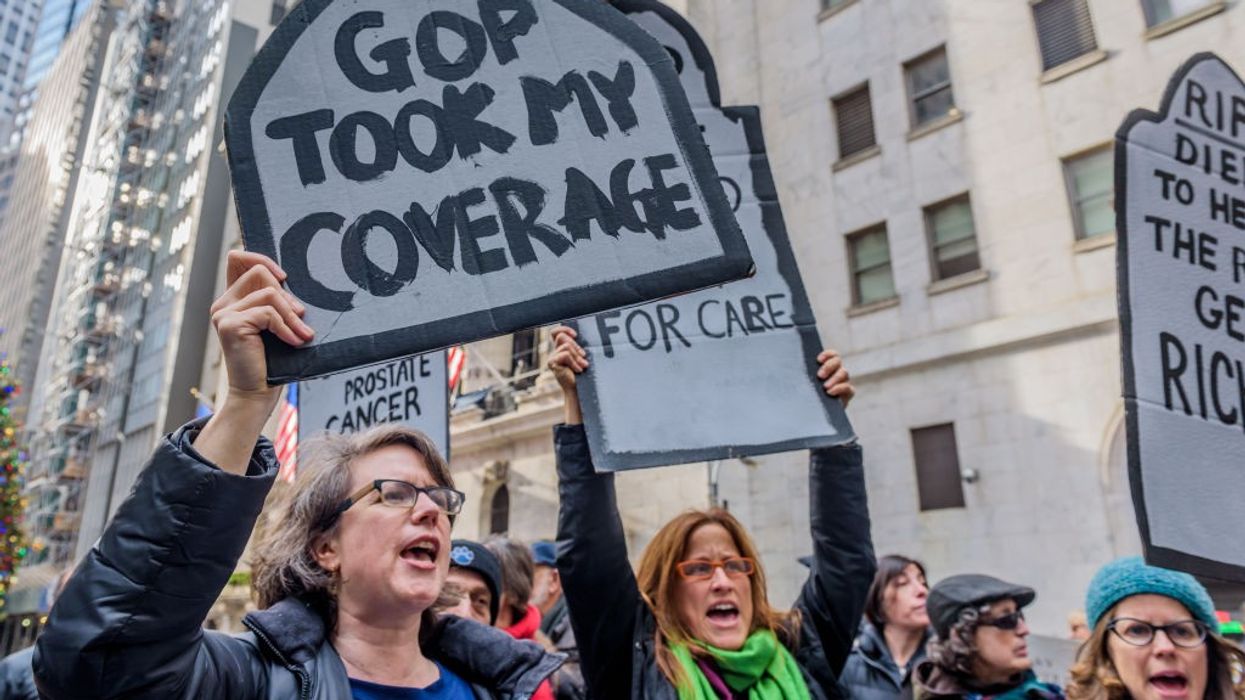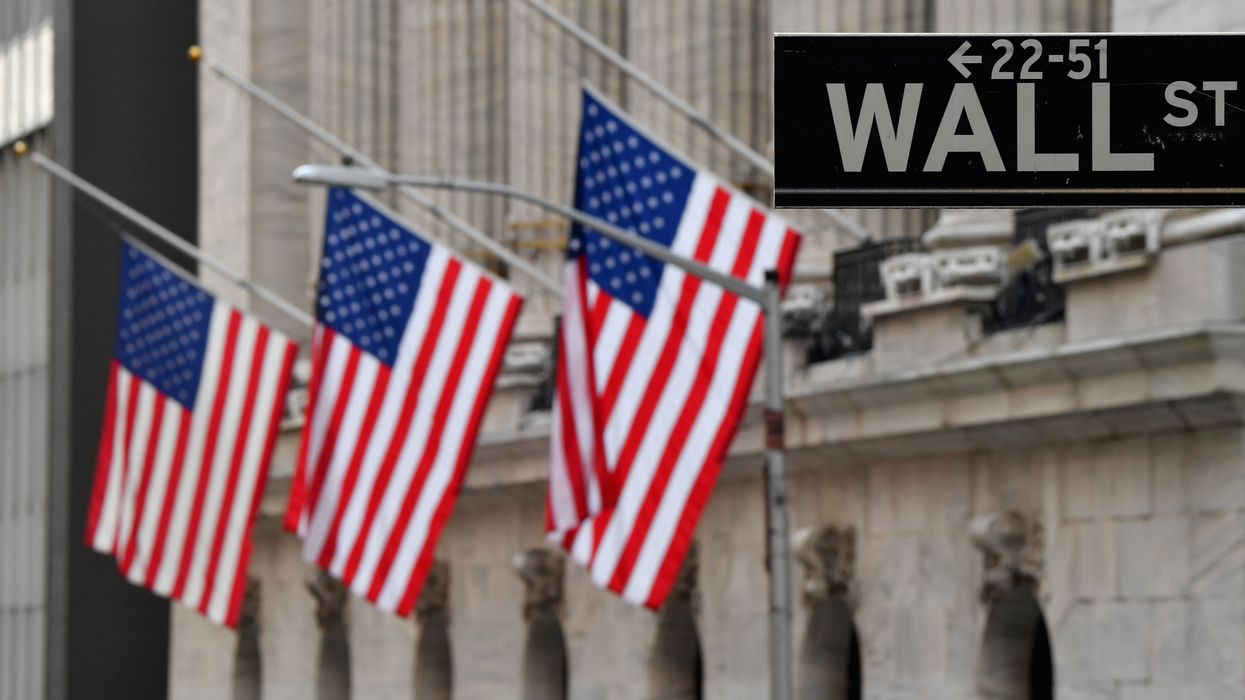According to the report, "the decrease in real GDP in the first quarter primarily reflected an increase in imports... and a decrease in government spending." When calculating GDP, imports are subtracted, meaning more imports will yield a lower number.
A number of outlets have cautioned that the 0.3% contraction figure is somewhat misleading. Axios pointed to solid business investment and consumer spending data in the report as evidence "signaling at least some underlying momentum in the economy—at least once volatile measures like trade are stripped out." The New York Times offered similar analysis.
But even with this caveat, the economic picture is less than rosy. "Maybe some of this negativity is due to a rush to bring in imports before the tariffs go up, but there is simply no way for policy advisors to sugar-coat this. Growth has simply vanished," said Chris Rupkey, chief economist at Fwdbonds.
Several observers were quick to point the finger at the Trump administration.
"Our economy is crumbling under President Trump's mismanagement, and today's falling GDP data confirms our slide toward a recession," said Lindsay Owens, the executive director of the progressive group Groundwork Collaborative. "Trump is creating the conditions for a particularly brutal recession."
"It turns out that when you launch a trade war with blanket tariffs, layoff federal workers en masse, cancel federal contracts, and reduce skilled immigration, you will have negative GDP growth," wrote Rep. Ro Khanna (D-Calif.) on X.
Rep. Don Beyer (D-Va.) said that "Trump's chaos is clearly and significantly raising the risk of a recession, and the economic warning lights are all flashing red."
In response to the release, markets slipped on Wednesday.
Trump, for his part, took to his social media site Truth Social on Wednesday to say that "This is Biden's Stock Market, not Trump's." He added that "tariffs will soon start kicking in, and companies are starting to move into the USA in record numbers … This will take a while, has NOTHING TO DO WITH TARIFFS, only that he left us with bad numbers, but when the boom begins, it will be like no other."
Economists say they think Wednesday's numbers are related to tariffs. According to reporting from the Times, the main takeaway from the report is that consumers and businesses started to modify their behavior even prior to Trumps "Liberation Day" tariffs on April 2, which rattled markets.
A surge in the trade deficit edged GDP into negative territory, said Dean Baker, senior economist for the left-leaning economic think tank the Center for Economic and Policy Research, in a statement on Wednesday. "This was due to massive stockpiling of inventories and purchases of durable goods in anticipation of tariffs."
"The negative GDP number could also mean the end of the big upswing in productivity growth under Biden. This is bad news for both real wage growth and inflation," continued Baker.
"No surprise that GDP took a hit in the first quarter, mainly because the balance of trade blew up as companies imported goods like crazy to front-run tariffs. The more telling number for the future of the expansion was consumer spending, and it grew, but at a relatively weak pace," said Robert Frick, corporate economist with Navy Federal Credit Union, according to CNBC.
Wednesday's report also registered increased inflation. The personal consumption expenditures price index, the Federal Reserve's favored inflation gauge, registered a 3.6% gain for Q1, up from 2.4% in the final quarter of last year.
The numbers from the Bureau of Economic Analysis come a day after reports of consumer confidence in April dipping to lows not seen since early in the COVID-19 pandemic.
There is still major economic data set to be released this week. On Friday, the U.S. Bureau of Labor Statistics will release its jobs report for the month of April.
This article was updated with a comment from Rep. Don Beyer (D-Va.).




